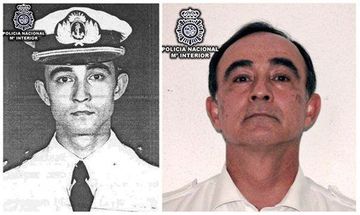So next year there will be local council elections in the Netherlands. These are usually a good guidance to how well a party will do in general elections, how well the current government is doing as well as which of the opposition parties will profit from any weaknesses. In 2002 for example we had local elections just before the general elections (as the then governing coalition had splintered) and the huge surge his party had in cities like Rotterdam made apparant then that Pim Fortuyn would win big in the national contest as well. In the end of course other forces intervened and Fortuyn never got to witness those elections…
In this context, what to make than of Geert Wilders’ decision to stand for election in only two cities, Den Haag and Almere, but nowhere else, not even Rotterdam where Fortuyn’s succesors have been able to keep their seats on the council through all the upheavals which killed off the national party. Is this an admission of weakness, control freakery or something else?
As Wilders himself had admitted, one reason for limiting his ambitions in this election is the example of Fortuyn. After he was murdered, his party was taken over by chancers and egomaniacs, got into government but completely disintegrated in less than three months, taking the government with them. The LPF neither had the history nor the structure to keep going once Fortuyn himself was gone and even if he had not been murdered it’s doubtful whether it could’ve kept itself together; it was just slapped together too quickly to be stable.
Wilders has learned from this. He has structured his party — like Fortuyn also did — to keep himself in total control at all times by making it into an assocation without members, but with
contributors without voting rights. This in itself is not enough of course, but because Wilders has had the opportunity to let his party grow slower and hence could afford to be careful in chosing his candidates it has worked so far. There have been some mishaps with his MEPs, but nothing to embarassing and he has kept a short leash on his MPs in the Dutch parliament. If his party, the PVV (Party of Liberty), goes allout in the local elections they stand a good chance to win big in certain parts of the country, but at the expense of control. It’s just no possible to control an election campaign involving hundreds or thousands of candidates and volunteers in dozens of cities, unless you have a party structure that’s controlled by more than just one man’s will. (What’s more, you actually have to worry about local issues rather than the Moroccan Menace and that just won’t do…)
Insteads he plays it smart. He has chosen two typical Wilders cities to stand in. There’s
Den Haag with its old neglected inner city working class neighbourhoods with the same sort of muted ethnical and racial tensions you see in similar neighbourhoods in Burnley. Then there’s Almere, which you could see as a sort of “white flight” suburb of Amsterdam, where a lot of affluent and semi-affluent middleclass families move to out of Amsterdam once they get children. In the first city you have the, if you may, traditional Wilders and Fortuyn supporter: poor, working class or lumpen and xenophobic, especially against Moroccans and Muslims, long ignored by the traditional parties but not as much as they complain about. In the second city you have the “new” Wilders supporter: middleclass, not as openly xenophobic but worried about the influence “those people” have on the supposedly tolerant Dutch culture.
A big win for Wilders in either city, let alone both, will be a huge blow to all other parties, but especially the old, established triumvate of Christian Democrat (CDA), Liberal (VVD) and Social-Democrat (PvdA) parties. It will be seen as yet more evidence that these parties still cannot reach the socalled Fortuyn voters despite all their attempts in the last five years to appeal to them. If they win in Almere it will be even worse, as that will be proof that the party can now reach beyond their traditional base and appeal to the core voter, the nice middleclass people who do their civic duty in every election and who used to vote CDA or VVD or PvdA but who do see a lot of sense in what Wilders is saying.
So concentrating on those two cities makes a lot of sense for Wilders. It will be interesting to see how the other parties react. They need to resist the temptation to make this into a national referendum on Wilders and focus on the issues any normal local election revolves around, but they can’t make the mistake of ignoring him either. A lot depends on the candidates Wilders will select.
